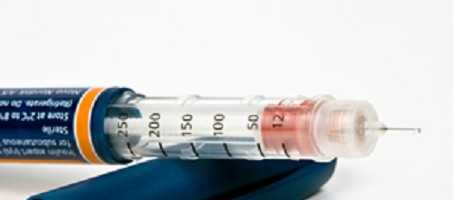A “smart” insulin is currently undergoing trials which could ease the strain for patients with diabetes constantly monitoring their blood sugar levels.
Scientists at the University of Utah have been testing a compound, known as Ins-PBA-F, which activates automatically when blood sugars rise. It remains in circulation for up to 24 hours.
The compound is a chemically modified version of long-acting insulin and has shown to be effective in diabetic mice, which were given a single daily injection of the modified insulin, resulting in their glucose levels becoming as stable as mice without diabetes.
Insulin release
Ins-PBA-F is engineered so additional molecules bind to a protein, called albumi, which circulates in the bloodstream. The smart insulin remains off when attached, but insulin is released when blood sugar levels rise and serves to regulate glucose levels.
The Utah team hope to test the Ins-PBA-F compound in diabetic patients within two to five years. This could prospectively remove the need to constantly monitor blood sugar levels and give top-ups of insulin after meals.
“Diabetic patients still need to guess to some extent how much insulin they need. With this you would just inject it and it wouldn’t matter if you overshot because its activity would stop when glucose levels get too low,” said Danny Chou, lead researcher and chemical biologist at the University of Utah.
While progression towards clinical trials in humans will take time, Karen Addingto, chief executive of the Juvenile Diabetes Research Foundation in the UK, remains optimistic regarding the smart insulin.
“For many people living with type 1 diabetes, achieving good blood glucose control is a daily battle. A smart insulin would eliminate hypos – which are what many with type 1 diabetes hate most. It would enable people with type 1 diabetes to achieve near perfect glucose control, all from a single injection per day or even per week. That’s really exciting,” Addington said.
What's new on the forum? ⭐️
Get our free newsletters
Stay up to date with the latest news, research and breakthroughs.







